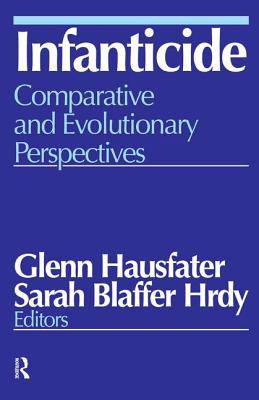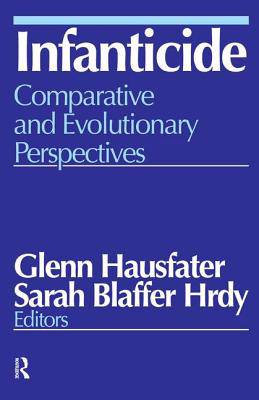
- Retrait gratuit dans votre magasin Club
- 7.000.000 titres dans notre catalogue
- Payer en toute sécurité
- Toujours un magasin près de chez vous
- Retrait gratuit dans votre magasin Club
- 7.000.000 titres dans notre catalogue
- Payer en toute sécurité
- Toujours un magasin près de chez vous
Infanticide
Comparative and Evolutionary Perspectives
Glenn Hausfater, Sarah Blaffer Hrdy
Livre relié | Anglais
274,95 €
+ 549 points
Format
Description
Recent field studies of a variety of mammalian species reveal a surprisingly high frequency of infanticide - the killing of unweaned or otherwise maternally dependent offspring. Similarly, studies of birds, fish, amphibians, and invertebrates demonstrate egg and larval mortality in these species, a phenomenon directly analogous to infanticide in mammals. In this collection, Hausfater and Hrdy draw together work on animal and human infanticide and place these studies in a broad evolutionary and comparative perspective.Infanticide presents the theoretical background and taxonomic distribution of infanticide, infanticide in nonhuman primates, infanticide in rodents, and infanticide in humans. It examines closely sex allocation and sex ratio theory, surveys the phylogeny of mammalian interbirth intervals, and reviews data on sources of egg and larval mortality in a variety of invertebrate and lower vertebrate species. Dealing with infanticide in nonhuman primates, two chapters critically examine data on infanticide in langurs and its broader theoretical implications. By reviewing sources of infant mortality in populations of small mammals and new laboratory analyses of the causes and consequences of infanticide, this work explores such issues as the ontogeny of infanticide, proximate cues of infants and females which elicit infanticidal behavior in males, the genetical basis of infanticide, and the hormonal determinants.Hausfater and Sarah Blaffer Hrdy, through their selection of materials for this book, evaluate the frequency, causes, and function of infanticide. Historical, ethnographic, and recent data on infanticide are surveyed. "Infanticide" summarizes current research on the evolutionary origins and proximate causation of infanticide in animals and man. As such it will be indispensable reading for anthropologists and behavioral biologists as well as ecologists, psychologists, demographers, and epidemiologists.
Spécifications
Parties prenantes
- Auteur(s) :
- Editeur:
Contenu
- Nombre de pages :
- 640
- Langue:
- Anglais
Caractéristiques
- EAN:
- 9781138526068
- Date de parution :
- 12-10-17
- Format:
- Livre relié
- Format numérique:
- Genaaid
- Dimensions :
- 152 mm x 229 mm
- Poids :
- 1016 g







